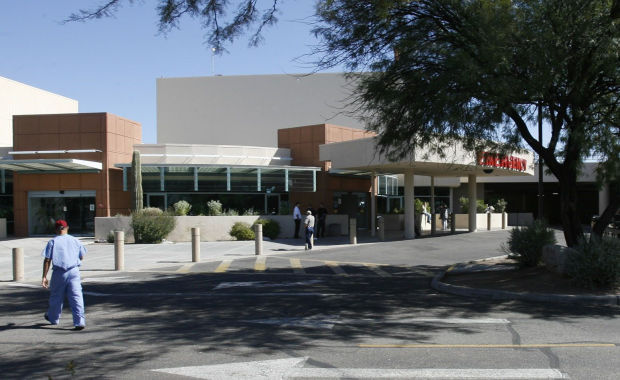PHOENIX — Current and former Republican lawmakers are making a last-ditch effort to eliminate a program that provides health care to about 400,000 Arizonans.
In new legal filings Monday with the Arizona Supreme Court, Goldwater Institute attorney Christina Sandefur said she is not arguing that the program expanding health care is illegal. Instead, she contends on behalf of GOP legislators she represents that the levy on hospitals, which effectively pays the state’s share of the cost, was illegally enacted because it was approved only by a simple majority of the House and Senate.
If the justices agree, the state could no longer collect the approximately $264 million being paid annually by the hospitals. Without that money, there aren’t enough funds for the program that both expanded coverage in the state’s Medicaid program and restored coverage for those dropped from it in a budget-savings move.
But Sandefur said the implications of declaring the levy legal are even more drastic. She said it would effectively eviscerate the 1992 voter-approved state constitutional amendment that says new taxes can be enacted only with a two-thirds vote of both chambers.
The case comes down to whether the plan hatched by Gov. Jan Brewer to expand Medicaid in 2013 is legal.
Prior to then, the state provided care for everyone below the federal poverty level through the Arizona Health Care Cost Containment System, the state’s Medicaid program.
Brewer used a provision in the Affordable Care Act that allows states to expand coverage to those at 138 percent of the federal poverty level, with the federal government absorbing all the cost, at least initially.
But to take advantage of that, the state had to first restore coverage to childless adults below the federal poverty level. These are people who are not required to be covered under the federal Medicaid law, whom the state stopped enrolling years earlier in a budget-savings move.
With no spare cash, Brewer came up with an idea: Pay for the restoration through a levy on hospitals. The idea had the support of hospitals because AHCCCS Director Tom Betlach structured it so that each chain would pay less in the assessment than it would make up by having fewer uninsured people coming to emergency rooms unable to pay.
Brewer cobbled together a coalition of Democrats and a few GOP legislators to get the measure the majority vote it needed. The ones who voted against it sued, contending it is a tax.
That is significant because of the constitutional provision requiring a two-thirds vote for new taxes. The number of GOP lawmakers who voted against it — and are now suing to have it declared an illegal tax — would have been enough to block it.
If the Supreme Court agrees, the vote to impose it is nullified and the money goes away.
Sandefur has had no luck making that argument to the Court of Appeals.
Appellate Judge Paul McMurdie, writing earlier this year for the unanimous court, said the Arizona Constitution imposes the two-thirds vote requirement for taxes enacted by the Legislature itself. But he said that what lawmakers approved in 2013 was not a tax but instead a directive to Betlach to craft an assessment on hospitals sufficient to pay the state’s costs.
He said the Arizona Constitution has a clear exception for fees set by a state agency.
In her new filings with the high court Monday, Sandefur told the justices that ruling “leads to the absurd consequence of allowing the Legislature to evade the supermajority requirement by merely enacting a statute — by a simple majority — to empower a single official to exact money from the citizenry.”
“A supermajority would be required to enact a new tax, but a bare legislative majority can hand an unelected administrator virtually unlimited power to collect money,” Sandefur continued. “That cannot be what voters intended.”
There’s another issue at work. The appellate judges said what Betlach is collecting from hospitals is not a “tax” but instead a fee or assessment, which they said is not subject to the two-thirds vote requirement.
Sandefur disagrees, saying taxes are collected to be expended for “general public purposes.” And this one is designed specifically to reduce the number of uninsured in Arizona.
McMurdie, in the appellate ruling, acknowledged more people would get care. But he said the legislation was worded to say that the real beneficiaries were the hospitals — those paying the levy — because they would be able to provide care and get paid for it for the people now covered with insurance.
The justices are set to hear the case on Oct. 26.





